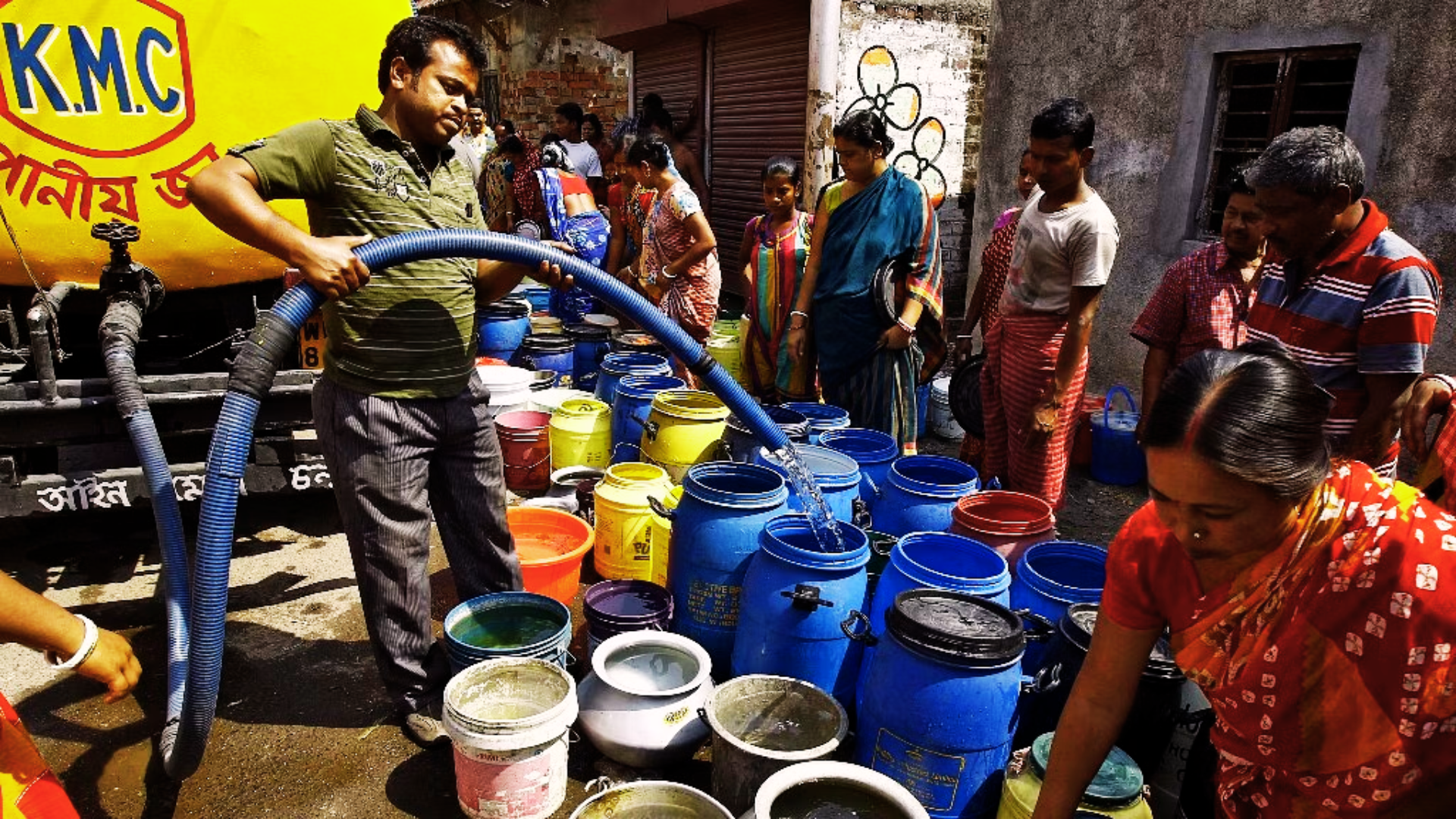Due to the worsening water scarcity in Bengaluru, some schools in the city may be compelled to temporarily close. These schools express concerns that the water shortage leaves them unable to provide adequate protection for children against the scorching heat.
Temperatures in Karnataka’s capital have already risen above 30 degrees Celsius, reaching a high of 33 on Thursday, and are expected to reach 37 by the following weekend.
The city is grappling with a severe deficit of over 1,500 MLD (million litres per day) in its daily water requirement, which typically ranges from 2,600 to 2,800 MLD. According to the state government, more than 3,000 bore wells in the city have dried up, and 223 out of the state’s 236 talukas are experiencing drought conditions.
Muruga, a seventh-grade student at a government-run school in the city, informed the media that there is no water available for drinking.
He expressed, “We are facing a water scarcity issue. We lack access to drinking water, and even washing our hands after meals is a challenge. Additionally, there is a shortage of water tankers available.”
The situation has become so dire that even schools and residents willing to pay for water tankers cannot obtain supplies. Concerned locals are already taking steps to conserve or recycle water.
Karnataka Facing Serious Water Crisis:
Specialists have highlighted the degradation of lakes in Bengaluru. Once renowned as the ‘city of lakes’ with 285 small and large water bodies, these lakes served essential purposes like sustaining and replenishing groundwater, providing habitats for aquatic ecosystems, and supporting food and agricultural activities.
In an attempt to mitigate the severity of the crisis, the state government has assumed control of private water tankers. More than 200 tankers have already been mobilized on a contractual basis to establish uniform rates.
The price of water tankers had recently surged, doubling to over ₹ 2,000. This increase led to complaints from residents, alleging that private suppliers were exploiting the situation for financial gain.
However, witnessing the crisis, resident welfare associations (RWAs) across the city have implemented stringent measures to conserve water. Faced with unprecedented scarcity, these RWAs have initiated water rationing and imposed restrictions on non-essential water usage activities, such as washing vehicles and maintaining swimming pools.






















